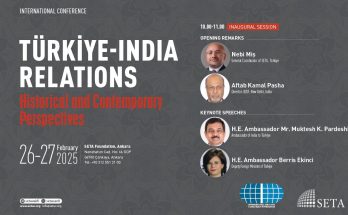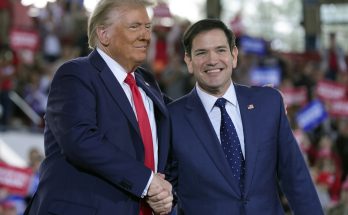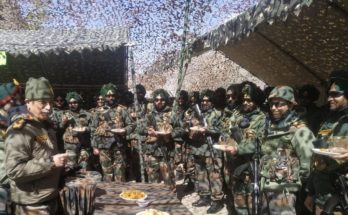 WASHINGTON/NEW YORK: In an act of faith, India’s Prime Minister Manmohan Singh has said that the “barbaric” killing of Indian soldiers in Jammu and Kashmir will not deter him to pursue the path of dialogue with Pakistan and hinted that the “provocative” act will not derail his meeting with his Pakistani counterpart Nawaz Sharif in New York later this week.
WASHINGTON/NEW YORK: In an act of faith, India’s Prime Minister Manmohan Singh has said that the “barbaric” killing of Indian soldiers in Jammu and Kashmir will not deter him to pursue the path of dialogue with Pakistan and hinted that the “provocative” act will not derail his meeting with his Pakistani counterpart Nawaz Sharif in New York later this week.
Just ahead of his much-speculated meeting with Sharif on the sidelines of the United Nations General Assembly (UNGA), a group of militants attired in Indian Army uniforms targeted a police station and an army base in Jammu and Kashmir Sept 25 and killed 12 people, including five policemen. India’s Home Minister Sushil Kumar Shinde has said that the militants had come from the Pakistani territory.
The brutal killing has triggered outrage in India with chief opposition Bharatiya Janata Party (BJP) clamouring for the cancellation of Manmohan Singh’s planned meeting between Sharif in New York. The terror attack has cast a shadow over the upcoming talks, but Manmohan Singh appears to be resolute in not giving in to the designs of saboteurs.
This is one more in a series of provocations and barbaric actions by the enemies of peace,” Manmohan Singh said in a statement from Frankfurt en route to the US. “We are firmly resolved to combat and defeat the terrorist menace that continues to receive encouragement and reinforcement from across the border,” he added. Manmohan Singh, who has invested enormous political capital in turning around the accident-prone relations with Pakistan, underlined that “such attacks will not deter us and will not succeed in derailing our efforts to find a resolution to all problems through a process of dialogue.”
Politics and Outrage in India
Manmohan Singh’s statesman-like stance has, however, not cut ice with a belligerent opposition and a restive constituency of hawks back home who have called for the cancellation of talks.
BJP chief Rajnath Singh said the talks with Pakistan should be discontinued because the leaders didn’t mean what they said. Narendra Modi, the BJP’s prime ministerial candidate, chose to be circumspect, and cautioned the Indian prime minister against haste. “Should the PM show such haste to meet Pakistani leaders? Every citizen asks, are we so weak that our neighbours can do what they want and we keep our eyes shut, our mouths locked?” he asked.
Pakistan for Dialogue
P akistan, on its part, cautioned that such “senseless acts of violence should not deter us from pursuing a path to a better future for our peoples.” Voicing sympathy for the families of the victims of the twin attacks in Jammu and Kashmir, Pakistan’s high commission said in a statement in New Delhi: “Terrorism is a pernicious evil. Pakistan has been its foremost victim. We are committed to leaving no stone unturned to eliminate the specter of terrorist violence from our society and our region.”
akistan, on its part, cautioned that such “senseless acts of violence should not deter us from pursuing a path to a better future for our peoples.” Voicing sympathy for the families of the victims of the twin attacks in Jammu and Kashmir, Pakistan’s high commission said in a statement in New Delhi: “Terrorism is a pernicious evil. Pakistan has been its foremost victim. We are committed to leaving no stone unturned to eliminate the specter of terrorist violence from our society and our region.”
In New York, Sharif said he was looking forward to his meeting Manmohan Singh and underlined that he hoped “
to pick up the threads from where we left in 1999,” an allusion to his historic meeting with then Prime Minister Atal Bihari Vajpayee, who travelled to Lahore by bus in 1999 to revitalize engagement with Pakistan. Sharif’s optimistic statement was, however, made a day before the militants struck in Jammu and Kashmir.
 The terror attack may not derail the upcoming meeting between the leaders of India and Pakistan, but is sure to change the atmospherics. Manmohan Singh is expected to deliver a stern message to Sharif, on the lines of what he told then Pakistan President Asif Ali Zardari in Yekaterinburg in June 2009 that he has the mandate to tell him that the Pakistani territory should not be allowed for anti-India activities.
The terror attack may not derail the upcoming meeting between the leaders of India and Pakistan, but is sure to change the atmospherics. Manmohan Singh is expected to deliver a stern message to Sharif, on the lines of what he told then Pakistan President Asif Ali Zardari in Yekaterinburg in June 2009 that he has the mandate to tell him that the Pakistani territory should not be allowed for anti-India activities.
Walk the anti-terror talk
 Manmohan Singh is expected to press the Pakistani leader, who has struck positive notes about seeking peace with India, to take action against suspected 26/11 mastermind Hafiz Saeed, who continues to air virulent anti-India propaganda with impunity. This is the bottomline: as India has been telling tirelessly to Pakistani leaders that any meaningful and substantive improvement in bilateral relations can only happen in an atmosphere free from terror. It’s time for Pakistan to walk the talk, and go beyond repeated failed anti-terror pledges by prosecuting perpetrators of the Mumabi carnage and taking action against anti-India militants and propagandists sheltering in the Pakistani territory. Manmohan Singh’s statesman-like gesture in going ahead with the meeting in New York, despite mounting domestic opposition and the latest round of killings of Indian soldiers, should not be construed as a sign of weakness, but as an articulation of a larger vision of creating a sphere of co-prosperity in South Asia. It’s for Pakistan to seize this opportunity and back the talk with action on the ground.
Manmohan Singh is expected to press the Pakistani leader, who has struck positive notes about seeking peace with India, to take action against suspected 26/11 mastermind Hafiz Saeed, who continues to air virulent anti-India propaganda with impunity. This is the bottomline: as India has been telling tirelessly to Pakistani leaders that any meaningful and substantive improvement in bilateral relations can only happen in an atmosphere free from terror. It’s time for Pakistan to walk the talk, and go beyond repeated failed anti-terror pledges by prosecuting perpetrators of the Mumabi carnage and taking action against anti-India militants and propagandists sheltering in the Pakistani territory. Manmohan Singh’s statesman-like gesture in going ahead with the meeting in New York, despite mounting domestic opposition and the latest round of killings of Indian soldiers, should not be construed as a sign of weakness, but as an articulation of a larger vision of creating a sphere of co-prosperity in South Asia. It’s for Pakistan to seize this opportunity and back the talk with action on the ground.
 (Manish Chand is Editor-in-Chief of India Writes, www.indiawrites.org, an online magazine and journal focused on international affairs, the India Story, emerging powers and dialogue among cultures. He is in Washington to report and analyse Indian Prime Minister Manmohan Singh’s visit to the US).
(Manish Chand is Editor-in-Chief of India Writes, www.indiawrites.org, an online magazine and journal focused on international affairs, the India Story, emerging powers and dialogue among cultures. He is in Washington to report and analyse Indian Prime Minister Manmohan Singh’s visit to the US).
Author Profile

- Manish Chand is Founder-CEO and Editor-in-Chief of India Writes Network (www.indiawrites.org) and India and World, a pioneering magazine focused on international affairs. He is CEO/Director of TGII Media Private Limited, an India-based media, publishing, research and consultancy company.
Latest entries
 India and the WorldFebruary 14, 2025Modi-Trump COMPACT: India, US launch MEGA partnership for 21st century
India and the WorldFebruary 14, 2025Modi-Trump COMPACT: India, US launch MEGA partnership for 21st century India and the WorldJanuary 28, 2025Modi, Trump talk global peace, focus on strategic connect
India and the WorldJanuary 28, 2025Modi, Trump talk global peace, focus on strategic connect India and the WorldDecember 16, 2024Kazan Spirit: India, China SRs to hold talks in Beijing
India and the WorldDecember 16, 2024Kazan Spirit: India, China SRs to hold talks in Beijing India and the WorldDecember 10, 2024Malta backs stronger ties, sees India as a rising global power: Envoy
India and the WorldDecember 10, 2024Malta backs stronger ties, sees India as a rising global power: Envoy







